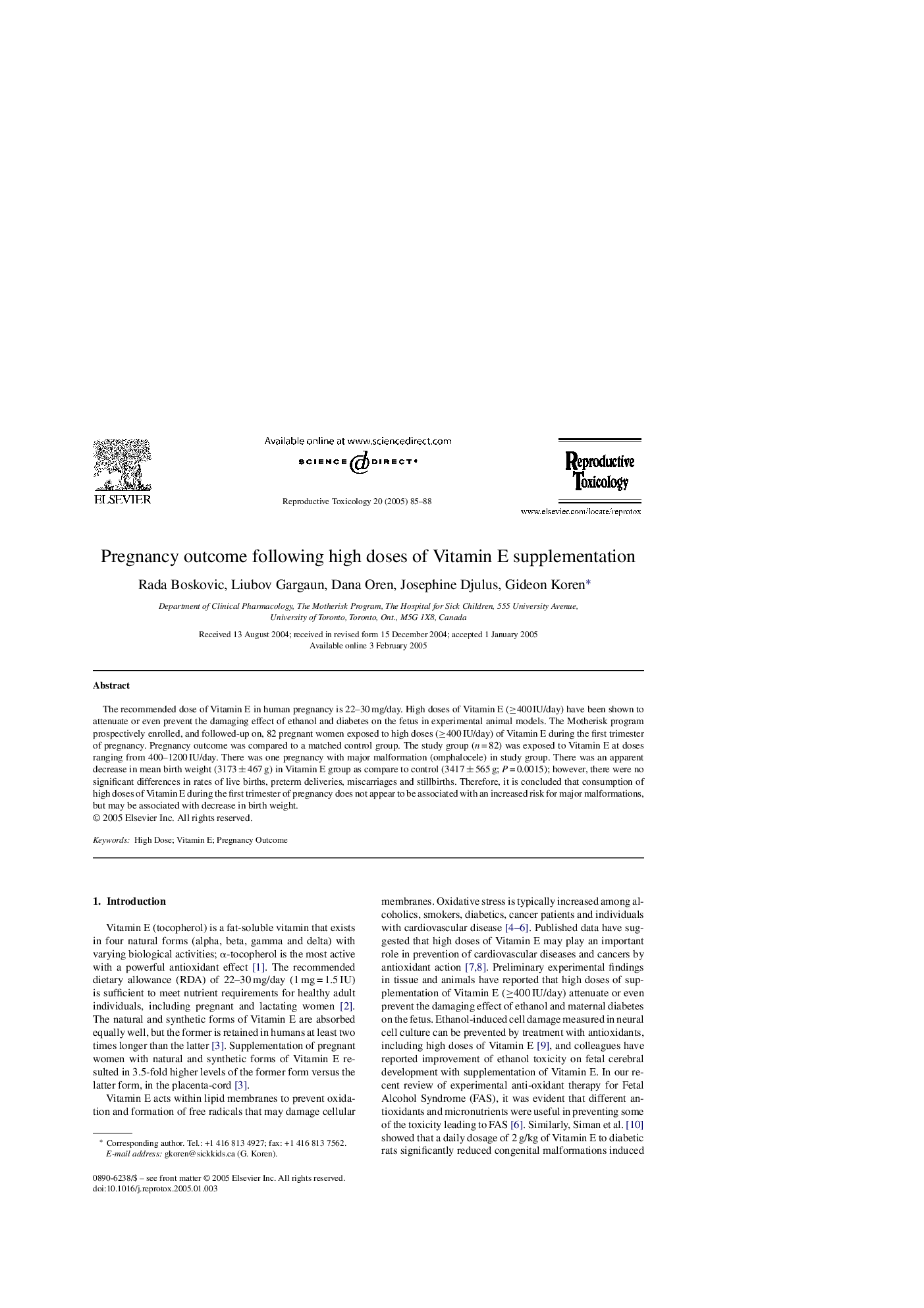| Article ID | Journal | Published Year | Pages | File Type |
|---|---|---|---|---|
| 9033966 | Reproductive Toxicology | 2005 | 4 Pages |
Abstract
The recommended dose of Vitamin E in human pregnancy is 22-30 mg/day. High doses of Vitamin E (â¥400 IU/day) have been shown to attenuate or even prevent the damaging effect of ethanol and diabetes on the fetus in experimental animal models. The Motherisk program prospectively enrolled, and followed-up on, 82 pregnant women exposed to high doses (â¥400 IU/day) of Vitamin E during the first trimester of pregnancy. Pregnancy outcome was compared to a matched control group. The study group (n = 82) was exposed to Vitamin E at doses ranging from 400-1200 IU/day. There was one pregnancy with major malformation (omphalocele) in study group. There was an apparent decrease in mean birth weight (3173 ± 467 g) in Vitamin E group as compare to control (3417 ± 565 g; P = 0.0015); however, there were no significant differences in rates of live births, preterm deliveries, miscarriages and stillbirths. Therefore, it is concluded that consumption of high doses of Vitamin E during the first trimester of pregnancy does not appear to be associated with an increased risk for major malformations, but may be associated with decrease in birth weight.
Keywords
Related Topics
Life Sciences
Environmental Science
Health, Toxicology and Mutagenesis
Authors
Rada Boskovic, Liubov Gargaun, Dana Oren, Josephine Djulus, Gideon Koren,
